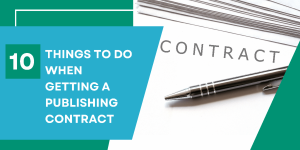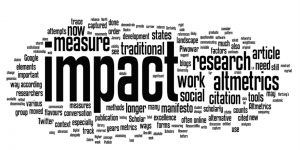Guest post by by LeEtta Schmidt, Copyright and Intellectual Property Librarian, and Jason Boczar, Digital Scholarship and Publishing Librarian Read it thoroughly. This includes any click through agreement that might be part of a journal manuscript submission system. Talk with your co-authors. …Continue Reading
Category: Scholarly Communication
Combatting Predatory Academic Journals and Conferences IAP Report
As you know, predatory journals, publishers and conferences are part of the academic publishing landscape. The Combatting Predatory Academic Journals and Conferences Report, led by an independent working group of international experts nominated by academies around the world, sets out to describe …Continue Reading
Workshop: Developing and Maintaining Academic Profiles
Join us on Thursday, September 23rd from 5-6 PM for a workshop about developing and maintaining author profiles. Managing your scholarly profiles on the task is an ever-changing world of resources and platforms, but if you focus your efforts there is a …Continue Reading
Citation Gecko
Citation Gecko is a new free online app that helps you find the most relevant papers to your research and gives you a “complete sense of the research landscape.” You start from a small set of seed papers that define an …Continue Reading
Author’s Approved Manuscript (AAM) and Increasing the Impact of Your Research
Guest Post from LeEtta Schmidt, Copyright Librarian and Intellectual Property Librarian at USF Tampa Library. Publishers have traditionally taken on the bulk of the work in promoting the books and journals that they manage. Even with this publisher support, an individual author …Continue Reading
Impact: Library Tools for Promotion and Tenure
The USF Libraries has a guide, Impact: Library Tools for Promotion and Tenure, for graduate students and faculty interested in determining journal quality and journal rankings, as well as tracking cited references to published work. If you need assistance with these tools, …Continue Reading
Do We Need Cabell’s Journal Blacklist?
The Source, a blog sponsored by Cabell’s, explains in this post why their Blacklist has become necessary to scholars. Check it out and see if you agree with them. If you are not sure about the quality of a journal, feel free to contact your librarian to check it out. Image credit
Cabell’s Blacklist is Here
There currently exists a black market economy of publishing scams, typically referred to as “predatory journals.” These are journals designed to look like genuine scholarly sources, but they publish whatever an author submits in return for payment of an article processing charge (APC). The purpose of a predatory journal blacklist is to identify and call attention to such scam operations so that unsuspecting authors are not fooled into publishing in these journals. Cabell’s has been a well regarded journal directory and now offers a blacklist which the USF Libraries has purchased. It is a welcome development for scholars. Criteria for inclusion on this list are clearly set out and publicly available. Blacklist ratings are given at the journal level with indicators about violations of Cabell’s criteria. This resource should help USF Scholars in avoiding predatory, questionable, or low-quality journals.
Plan-S: EU Plan for Free and Immediate Open Access to Journals
A controversial and recent initiative by the European Commission and a group of national researchers includes a plan to make thousands of research papers free to read on the day of publication, a mandate that could force a major change in the …Continue Reading
Investigating Suspicious Publishers
Recently I got a flattering letter from someone named “Florance” who represented the journal Educational Research Applications. She told me that if I contributed a manuscript by August 30th I’d get a discount on the publication fee which would amount to 1560$. Say what? That’s real sticker shock if we are talking about $1,560. Click farther into this post to see some of the strategies used for further investigation strategies for this journal.







